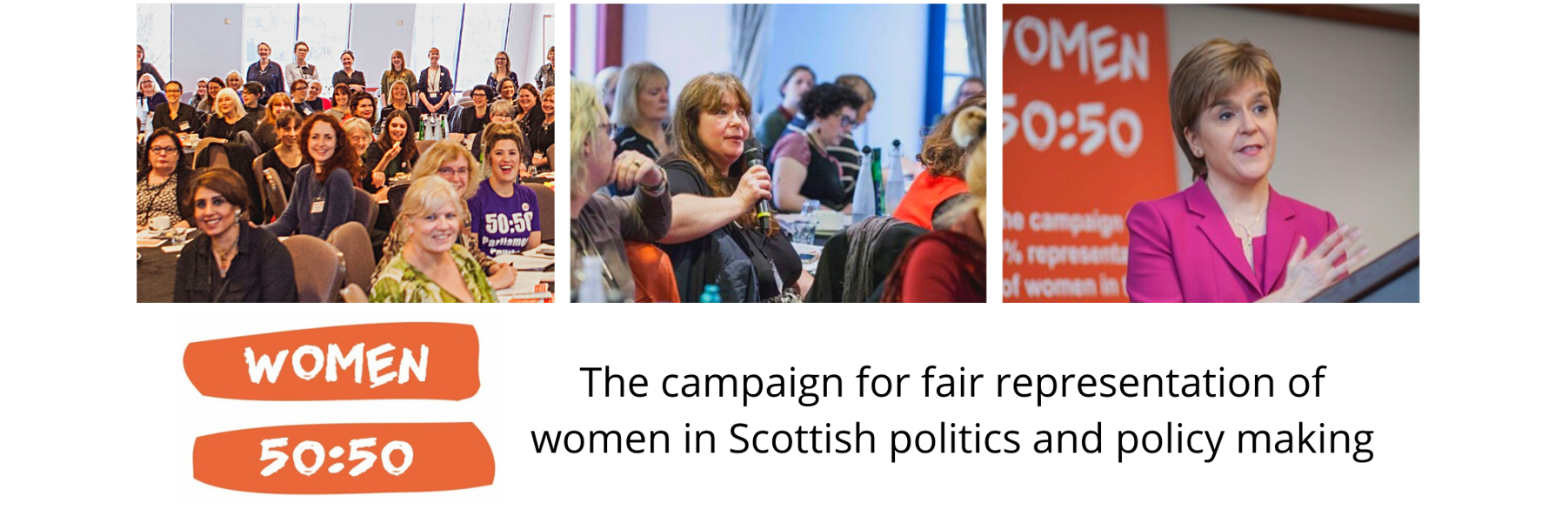With the Scottish Parliament elections just weeks away, the attention has been on candidate selections and whether we will finally see a more diverse, representative debate chamber – we certainly need it.
However, we need to take a moment to consider the significant number of MSPs standing down. Ahead of the 2016 election 24 MSPs were standing down, this time it is 30. Whilst this creates space for new voices in Scottish politics, the reasons for stepping down, largely mentioned by women, should concern us. 13 out of the 30 retiring MSPs are women, given the low numbers in parliament (36%) this means women are over-represented in retiring MSPs. The avergage age of the retiring women MSPs is 58 and men is 63.
What is clearly different between the men and women retiring are the reasons they have given (more of which has been written about on the BBC website). Men have given reasons which largely relate to their age, wanting to spend time with family (grandchildren most often cited), wanting to pursue other endevours or as Mike Russell has said, he feels it is now time for someone younger to take over as he will be 67 by May’s election.
Across many of the women who are retiring, particularly those who are younger, and in the case of Gail Ross, after just one term, they have talked about the pressures of public life, the difficulty in raising a young family and toxic political cultures. Gail Ross and Jenny Marra, have talked about their decision to step down being a consequence of the constant working away from home and travelling long distance to Edinburgh. In her letter stating her intentions, Jenny Marra said “I have decided that my role as MSP, takes me away from my young children too much during the week in Edinburgh, but also at evening meetings and weekend commitments”.
Aileen Campbell’s reasons were similar, stating; “there is no getting away from the fact that the job – while immensely rewarding – is demanding in terms of pressure and time. I hope in future I can spend a little more time with my boys at home”.
This pressures and the considerable time needed to do the role fully, are given by some women as reasons not to stand, certainly not because they feel any less committed or ambitious about politics, but because, in the main, even in 2021 women take on the majority of the care work at home. Whilst this systemic inequality continues, women will be more likely to de-select themselves from participating in demanding public life. Our politics needs to understand and mould to the work-life balance women may seek for caring reasons, but that everyone needs for their wellbeing. The expectations of politicans need to become more realistic and our processes more effective for politics to be accessible for all to participate in; as it currently stands large sections of society simply feel they cannot take part.
Gail Ross has, rightly, pointed out the need for technology to play a larger role in politicans’ work. Covid-19 has allowed this to already take place with MSPs participating in debates, committees and First Minister’s Questions via video conferencing, this should be maintained beyond the pandemic giving parliamentarians opportunity to participate without being away from their homes, their families and their constituents. This also provides more accessible routes beyond MSPs, to allow more people (both from organisations, general public and those with lived experience expertise) to take part in giving evidence and being part of outreach/participation efforts.
If we want to open the doors to Scottish politics to a wider audience and want it to work in a more meaningful way, we need to modernise its processes; in 2021 do MSPs physically need to be in the debate chamber to give a speech or answer a question? We need to create cultures which are flexible and respond to the reality of peoples’ lives; do local meetings need to go on until 8pm?
We cannot keep bemoaning a lack of diversity and have parties pursue outreach efforts, only for many women to experience politics as it currently stands and feel it cannot work for them and their lives. Any outreach, and efforts must be met with genuine political culture change.

